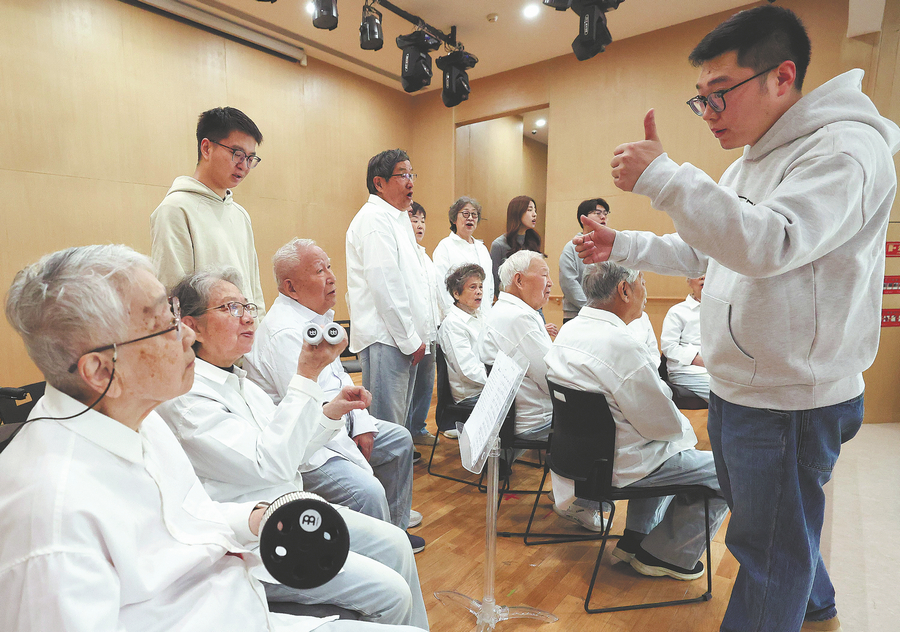
The Chengxin elderly care community in Beijing's Chaoyang district hosts a variety of music therapy activities during December 2024. Music therapist Wang Hanlin praises The Golden Wheat Choir on Dec 9, whose members are in their 80s and 90s. CUI JUN/FOR CHINA DAILY
Young therapist bridges generation gap to give a little harmony and compassion to seniors.
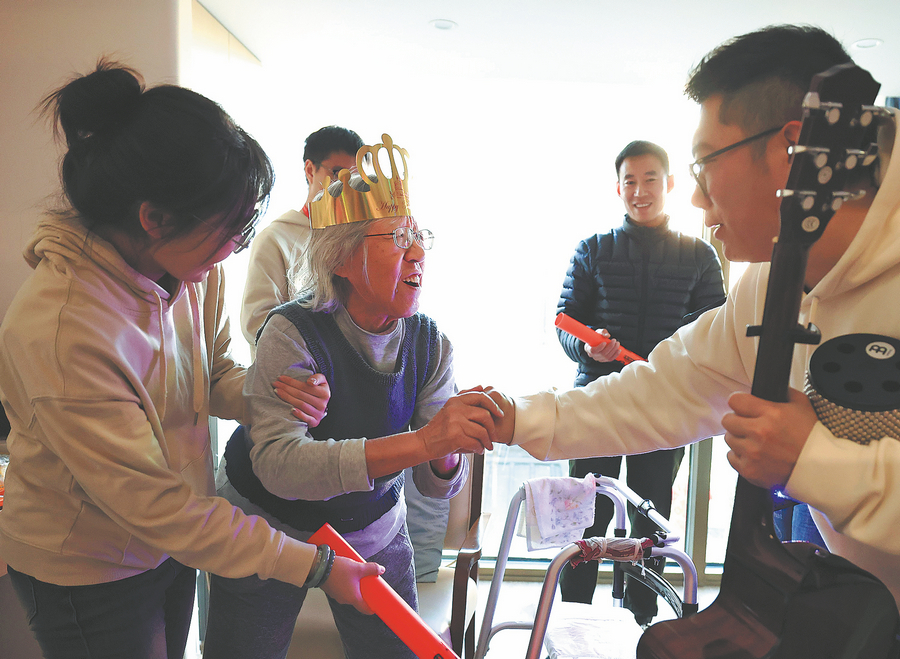
After receiving birthday greetings and watching a song performance, an elderly resident grasps music therapist Wang Hanlin's hand to express her heartfelt thanks to him on Dec 26, 2024. CUI JUN/FOR CHINA DAILY
In December last year, China issued a document on deepening the reform and development of elderly care services, emphasizing the need to strengthen professional support for institutional elderly care. In early 2025, the State Council Information Office released a report on elderly care services in China, revealing that there are currently 404,000 elderly care institutions and facilities across the country. To support the growth of this sector, many young people, particularly those born in the 1990s and even 2000s, are choosing to pursue careers in elderly care.
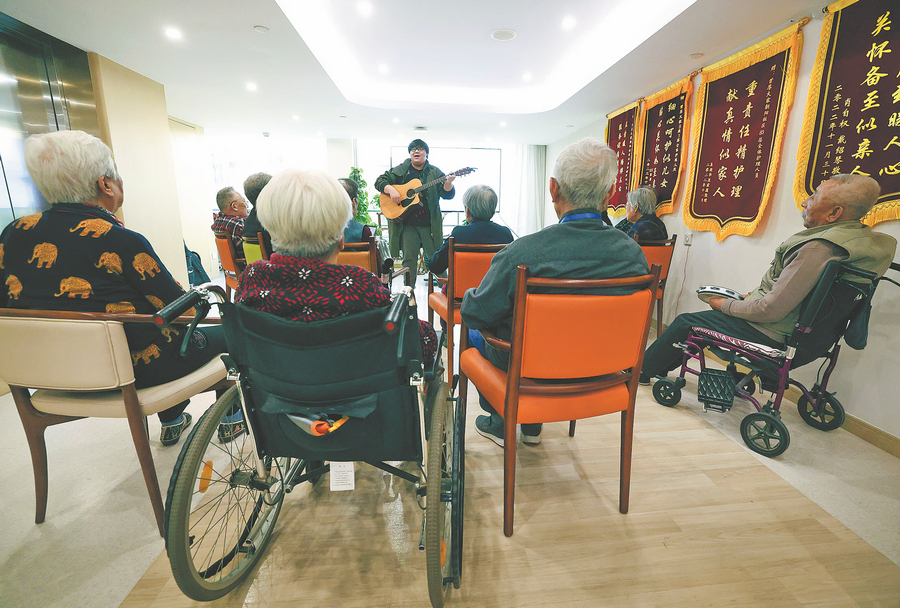
Intern Zhu Weihao organizes a weekly group for elderly residents to come together and connect through music on Dec 9. CUI JUN/FOR CHINA DAILY
2025 marks the 11th year that Wang Hanlin, a "post-90s" professional, has been working in the elderly care industry. He is currently a music therapist at the Chengxin oldage community in Beijing's Chaoyang district, and also serves as a designated clinical supervisor within the field.
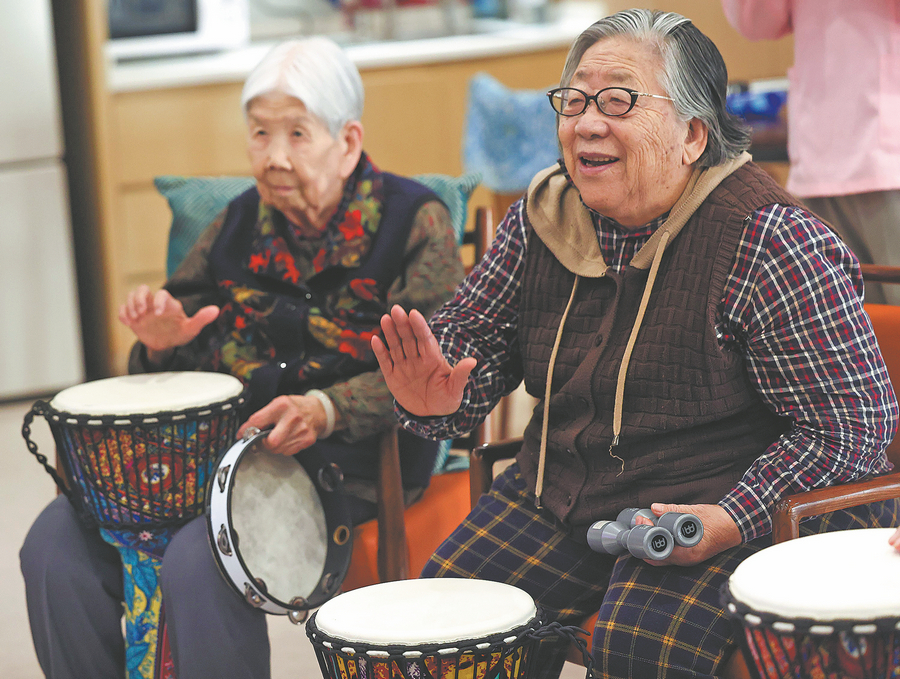
The community music group, led by music therapist Wang Hanlin, holds weekly percussion sessions and sing-alongs, allowing the elderly residents to spend their afternoons immersed in joyful music on Dec 27. CUI JUN/FOR CHINA DAILY
When filling out his university application, Wang Hanlin chose "music therapy". After graduating from the Central Conservatory of Music in 2014, he decided to enter the elderly care sector. During his second year at university, Wang Hanlin was introduced to music therapy for the elderly in a clinical practice course. The moment he entered the elderly care community, he felt as though he had found his true calling: "I'm not sure why, but I felt so comfortable being with the elderly. This feeling was something I never experienced when working with children with special needs or other groups of people with disabilities." After that first clinical session, Wang Hanlin continued to explore the field and ultimately decided to dedicate himself to music therapy focused on the health and well-being of the elderly.
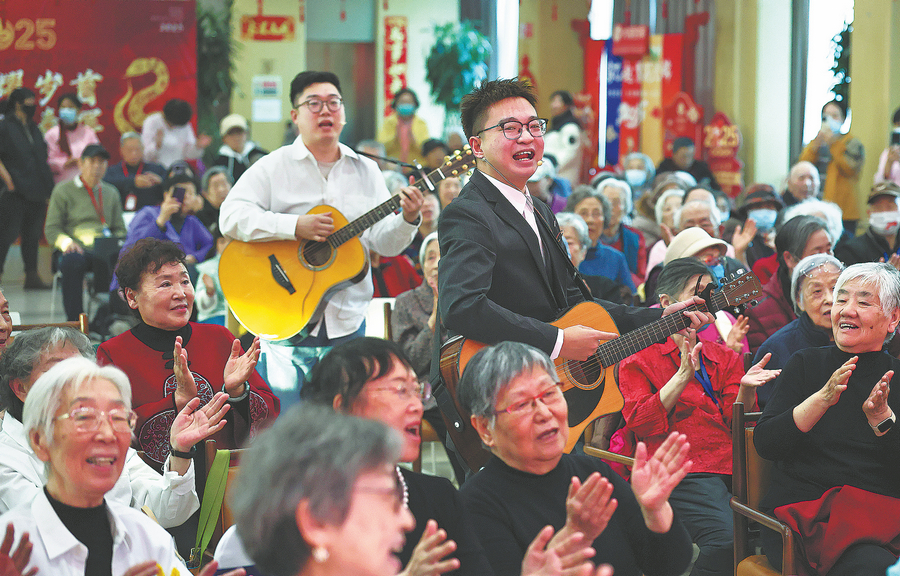
Music therapists Wang Hanlin and Luo Ruifan perform at the community's Spring Festival Gala, receiving rounds of applause from the elderly residents on Jan 22, 2025. CUI JUN/FOR CHINA DAILY
When the lights in the vocal room at the Chengxin old-age community are dimmed and sunlight pours in, the space takes on a warm, inviting atmosphere. Every week, Wang Hanlin teaches a "relaxation class" aimed at improving sleep health. After each session, many elderly residents enter a deeply relaxed state, with some even falling asleep.
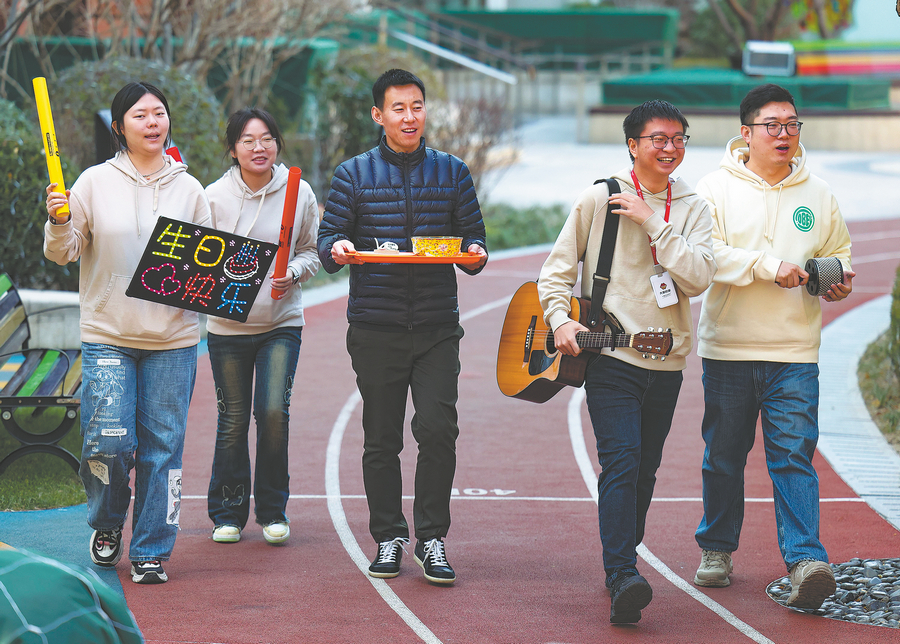
Leisure and health directors Wang Shaohui, Chen Jiawen, Shang Jiaoyang, and music therapists Wang Hanlin and Luo Ruifan bring musical blessings, birthday noodles, and cakes to elderly residents on Dec 26, 2024. CUI JUN/FOR CHINA DAILY
Working as a music therapist in an elderly care community is very different from working in a clinical setting. Here, music therapists are not only "therapists" but also "social workers". In addition to their regular therapeutic sessions, they also engage in activities like "playing music with the elderly, forming bands, rehearsing performances, and guiding the elderly in singing and playing instruments".
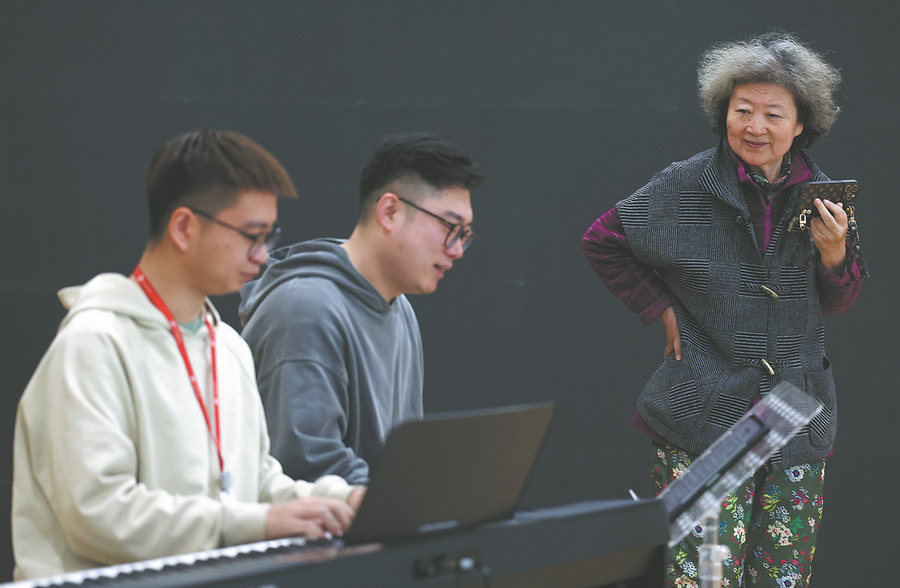
Music therapists Wang Hanlin and Luo Ruifan rehearse for the community's Spring Festival Gala on Jan 22, 2025, while an elderly resident quietly looks on. CUI JUN/FOR CHINA DAILY
Wang Hanlin also leads music therapy groups for elderly residents, using songwriting as an intervention for those suffering from dementia. When he learned that some residents were experiencing pain, he encouraged them to write their feelings of discomfort into a song, helping them release their emotions and express their feelings. For many elderly residents, the companionship and care provided by a music therapist holds a unique and significant value.
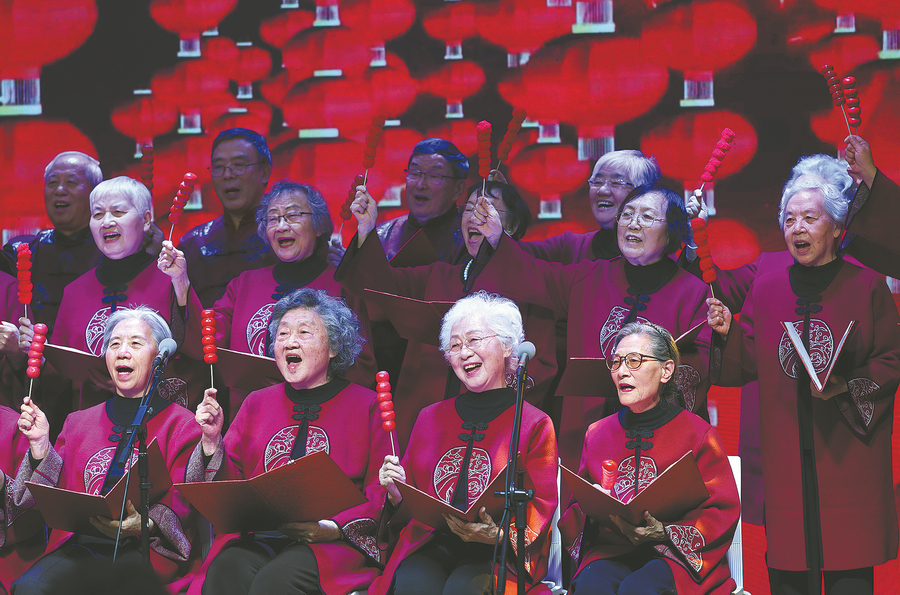
The elderly residents delight the audience by performing the song Bingtang Hulu (sugar-coated haws) at the community's Spring Festival Gala on Jan 22, 2025. CUI JUN/FOR CHINA DAILY
Wang Hanlin said that choosing music therapy as a career requires a genuine desire to help others. For example, when he learned that some elderly residents were in pain, he encouraged them to channel their emotions into songwriting as a way to cope. Without a true passion for this work, he feels that one may not be suited for the field, and would miss out on the joy it brings: "From the age of 60 and beyond, accompanying the elderly through their later years and forming deep connections with them provides invaluable energy, knowledge, and guidance — wealth that cannot be measured in monetary terms."
 Editor:Qiu Xiaochen
Editor:Qiu Xiaochen